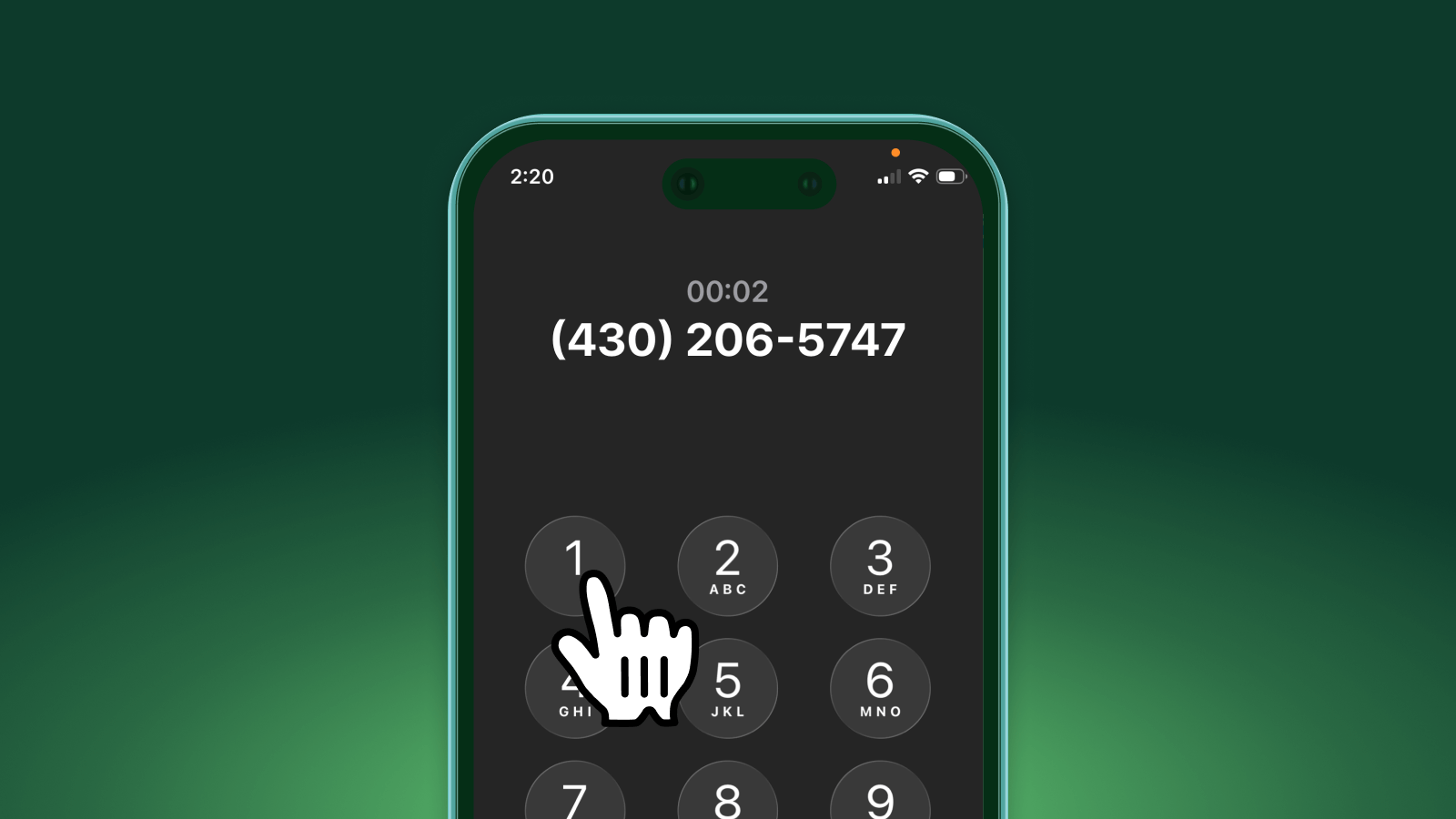- Call forwarding automatically redirects incoming calls from one phone number to another, ensuring you never miss important calls
- You can set specific rules based on time of day, caller ID, or call type to route calls to different numbers, departments, or people
- Benefits include being always available, capturing all business opportunities, and maintaining professional service even when you're away
Staying connected is an important part of the customer experience, but when business pulls you in different directions, it can be tough to be by the phone 24/7. Call forwarding could be an added feature that makes sure you never miss an important call, whether you’re in a meeting, on the road, or simply away from your desk. If you’re a busy professional, a small business owner, or simply someone who values keeping the lines of communication flowing, call forwarding can simplify your day-to-day and create a seamless experience for callers. We’ll break down everything you need to know about call forwarding, from the basics to the benefits and beyond.
What is call forwarding?
Call forwarding is a feature that lets you redirect incoming calls from your main number to another phone. It steps in when someone calls your office line but you’re away from your desk. Instead of letting the phone ring (or sending the caller to voicemail), call forwarding automatically sends that call to your cell phone so you can answer it wherever you are.
Call forwarding is a powerful tool for businesses too. It can:
- Boost customer service: Make sure every call is answered promptly, even during peak hours or when staff are unavailable.
- Increase efficiency: Route calls directly to the right department or individual, reducing wait times and keeping productivity a priority.
- Offer flexibility: Allow employees to work remotely without missing important calls.
- Maintain business continuity: Keep operations running smoothly, even during unexpected events or disruptions.
How does call forwarding work?
- Someone dials your main business phone number.
- Your phone system recognizes the forwarding settings and automatically redirects the incoming call to another number you’ve pre-selected.
- Instead of ringing your desk phone, the call rings on a mobile phone or whichever device you’ve set up for forwarding.
- You, or a dedicated answering service like Upfirst, answer the call as if it had been directly dialed to that number.
Call forwarding rules
Call forwarding isn’t just about sending all your calls to one place. It’s all about having the right call go to the right place at the right time, creating a truly personalized communication system.
Call forwarding rules are a specific set of instructions you give your phone system about where to send calls based on different criteria.
What can these rules be based on?
- Time of day: Forward calls to your mobile phone during business hours and to your voicemail or a dedicated answering service after hours.
- Caller ID: Direct calls from VIP clients to your personal line while sending general inquiries to a customer service line.
- Call type: Forward international calls to a specific department or unanswered calls to a voicemail service.
- Sequential forwarding: Ring multiple numbers in a specific order until someone answers.
How can call forwarding help your business?
You can deliver a professional and seamless calling experience with call forwarding services. During the day, calls to your main business line ring your office phone. But after hours and on weekends, those calls will automatically be forwarded to your mobile phone, so you never miss an important client request.
Important clients or family members can bypass the main queue and reach you directly by having their calls forwarded straight to your cell phone, no matter what time it is. Plus, if you don’t answer a call within a few rings, it can automatically forward to a colleague – the caller gets the help they need quickly and you don’t miss out on any opportunities (and revenue).
Benefits of call forwarding
Whether you’re a small startup or a large corporation, call forwarding can boost efficiency, improve customer service, and empower your team.
Always available, always connected: Never miss an important call, even when you’re away from your desk. Forward calls to your mobile phone, ensuring you’re reachable wherever you are.
Convenience at your fingertips: Manage your calls with ease, routing them to the most appropriate person or department based on time of day, caller ID, or other criteria.
Say goodbye to missed opportunities: Missed calls can mean missed opportunities. Call forwarding helps you handle every call, preventing potential leads or customer inquiries from reaching your voicemail.
Happy customers, thriving business: No more long wait times or frustrating voicemail mazes. Call forwarding ensures that customers are connected with the right person quickly, enhancing their overall experience.
Business continuity, uninterrupted: Keep your business operations running smoothly, even during unexpected events or disruptions – redirect calls to alternate locations or devices, maintaining communication, and minimizing downtime.
Cost-effective communication: Reduce communication costs by eliminating the need for multiple phone lines or expensive hardware, especially for remote employees or distributed teams.
Call forwarding is essential
What’s the cost of a missed call? With call forwarding, you’ll never have to find out. Stay connected, capture every opportunity, and keep your business moving forward, no matter where you are. Want to stay responsive for your customers and clients under any circumstance? Call forwarding is a simple yet effective solution that can make a world of difference in how you connect with others.
Ready to connect? See how Upfirst’s affordable answering service with optional call forwarding can help your business.
FAQs about call forwarding
Should I have call forwarding on or off?
The beauty of call forwarding is its flexibility. You can easily switch it on or off as needed, or set specific rules to control how calls are handled. If you need to be reachable at all times, even when away from your desk, or if you want to make sure no call goes unanswered, keep it on. If you prefer to focus on specific tasks without interruption or want to limit calls to certain times of day, turn it off.
Is call forwarding safe or not?
Yes, call forwarding is generally safe when you use trusted providers and strong passwords for your settings. However, watch out for unexpected call forwarding confirmations or unusual call routing, and contact your provider immediately if you notice anything suspicious.
Can call forwarding be tracked?
Yes, call forwarding can be tracked by your phone service provider, call forwarding services, and through call detail records (CDRs). These records show forwarded numbers and call durations, primarily for troubleshooting purposes.
Nick Lau is a copywriter and content lead for Upfirst.ai. A self-starter at heart, he dove into marketing in 2015 by launching an e-commerce company, selling private-labeled products on Amazon and Shopify. When he’s not crafting copy, you might spot him on a winding road trip to the coasts or through forests, in search of unexplored places.








